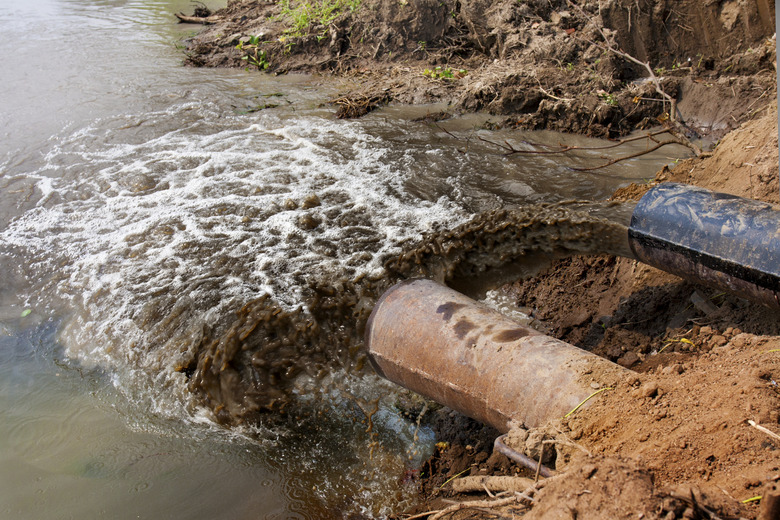Future Effects Of Pollution
Pollution occurs when chemicals and other foreign substances leech into the ground, air and water. These pollutants contain toxins that adversely impact ecosystems and the living creatures within them. Although environmental health and safety groups work to increase awareness of the danger pollution presents, if pollution continues at its current rate, the future effects could be devastating to human populations and the environment.
Extinction
Extinction
Pollution has an adverse impact on wildlife and will continue to do so well into the future. A 2004 report in "New Scientist" states that pollution is the primary cause of the extinction of various species of butterflies and other insects in Great Britain. Although pollution poses a threat to creatures on land, aquatic creatures may face an even greater danger.
According to the Environmental Protection Agency, an estimated one to 11 percent of all marine species will fall into extinction every decade between 1975 and 2015. Water pollution comes from industrial and agricultural runoff and in addition to presenting a danger to aquatic life, water pollution also impacts humans — since extinction of marine life adversely affects the food chain.
Human Illness
Human Illness
As pollutant levels increase, human exposure to toxins will also increase. The Environmental Protection Agency notes that exposure to pollutants is directly linked to cancer and heart disease.
Air pollution is a primary problem in urban areas and for individuals who live near major roadways, since vehicles give off a high concentration of pollutants. As air pollution increases, researchers anticipate that the negative health effects of exposure will also increase.
Global Warming
Global Warming
Burning fossil fuels for energy, such as coal, oil and natural gas, releases carbon dioxide and other toxins into the Earth's atmosphere. High carbon dioxide levels increase the air's temperature. According to the John Ray Initiative, this can cause the Earth's average temperature to rapidly change.
The phrase "greenhouse effect" often has negative connotations. In reality, however, the greenhouse effect is a natural and beneficial process by which the Earth's ozone prevents heat from escaping into the atmosphere. Because carbon dioxide causes the temperature on Earth to increase, the ozone layer's ability to trap heat close to the surface can result in global warming as pollutant levels escalate.
Economic Effects
Economic Effects
Pollution, due to its ability to cause illness in humans, can have a significant impact on the world's economy. The World Health Organization notes that an increased rate of illness due to pollution places a financial strain on insurance companies, government-funded health programs and individuals themselves. In addition, the more individuals who fall ill, the less productive employees are present to perform the activities necessary to keep a business running. Students absent from school due to illnesses caused by pollution may miss educational opportunities they would have otherwise enjoyed — further increasing the future economic hardships societies would face as a result of pollution.
Cite This Article
MLA
Edwards, Ciele. "Future Effects Of Pollution" sciencing.com, https://www.sciencing.com/future-effects-of-pollution-5690014/. 11 December 2018.
APA
Edwards, Ciele. (2018, December 11). Future Effects Of Pollution. sciencing.com. Retrieved from https://www.sciencing.com/future-effects-of-pollution-5690014/
Chicago
Edwards, Ciele. Future Effects Of Pollution last modified August 30, 2022. https://www.sciencing.com/future-effects-of-pollution-5690014/
